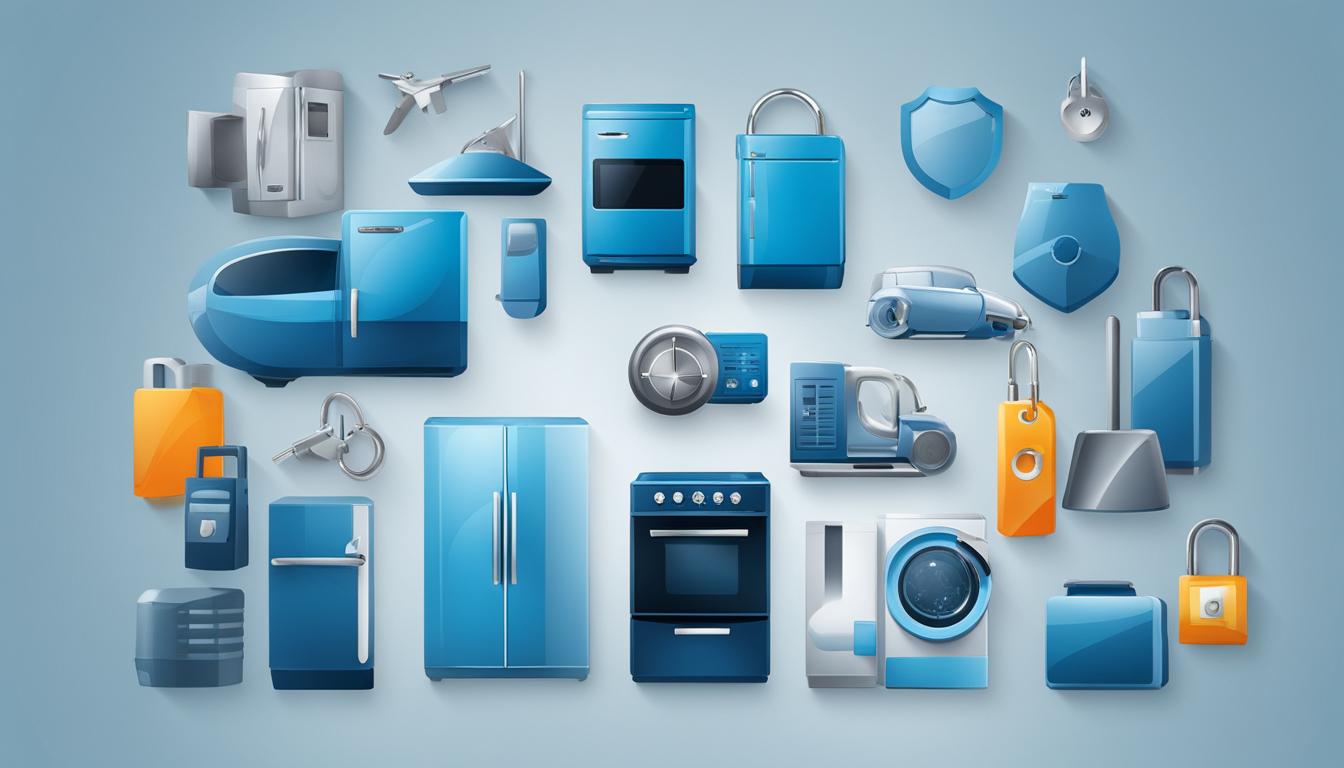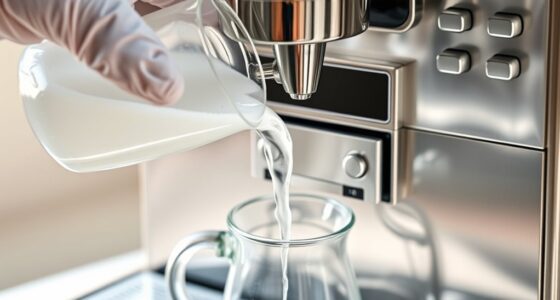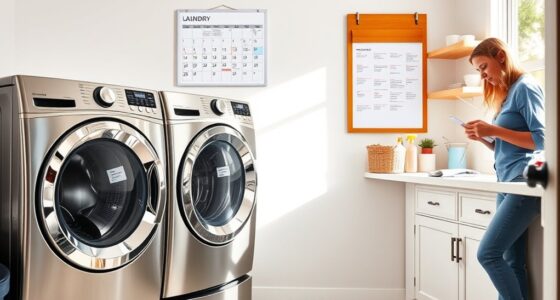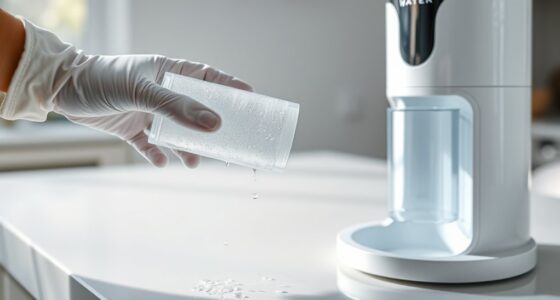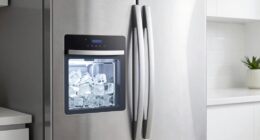Welcome to our guide on appliance extended warranty! When purchasing new appliances, it’s important to think about protecting your investment with an extended warranty. An extended appliance warranty gives you coverage to repair or replace your appliance if it stops working during the warranty period. This warranty is like the standard manufacturer’s warranty but covers you for a longer period of time.
Purchasing an extended warranty comes at a cost, but it can provide peace of mind and protect your investment. Retailers, manufacturers, and third-party companies offer extended appliance warranties, with an average cost ranging from $20 to $500 per year. In this guide, we will explore the benefits, costs, coverage, and alternatives of extended appliance warranties, helping you make an informed decision when it comes to securing your appliances.
Key Takeaways:
- An extended appliance warranty extends the coverage of a manufacturer’s warranty and provides repairs or replacements for mechanical failures or manufacturer defects.
- The cost of an extended appliance warranty can range from $20 to $500 per year, depending on various factors.
- Extended appliance warranties cover specific appliances, while home warranties offer more comprehensive protection for multiple appliances and systems in your home.
- Pros of an extended appliance warranty include predictable expenses, access to qualified technicians, and the ability to customize the warranty.
- Cons of an extended appliance warranty include potentially higher costs and the need to purchase separate warranties for each appliance.
What Is an Extended Appliance Warranty?
An extended appliance warranty is a valuable protection plan that extends the coverage of a manufacturer’s warranty for your appliances. It provides peace of mind by offering repairs or replacements for mechanical failures or manufacturer defects that occur within the warranty period. With an extended warranty, you can rest assured that your appliances are safeguarded beyond the standard warranty terms.
Extended appliance warranties are available for a wide range of appliances, including refrigerators, ovens, dishwashers, washing machines, and more. These warranties are often offered by retailers, manufacturers, or third-party companies, allowing you to choose the best option that suits your needs.
When considering an extended appliance warranty, it’s important to review the coverage details. The warranty terms and conditions may vary, so it’s essential to understand what is included and excluded from the coverage. This will help you make an informed decision and ensure that the warranty meets your requirements.
To summarize, an extended appliance warranty is a protection plan that extends the coverage of a manufacturer’s warranty. It provides repairs or replacements for mechanical failures or manufacturer defects within the warranty period. By purchasing an extended warranty, you can enhance the longevity of your appliances and enjoy added peace of mind.
How Much Does an Extended Appliance Warranty Cost?
An extended appliance warranty is a valuable investment to protect your appliances from unexpected breakdowns and repairs. However, before making a decision, it’s important to understand the cost associated with extended warranties.
The cost of an extended appliance warranty can vary depending on several factors. The primary factors that influence the cost include the warranty provider, the type of appliance, and the desired coverage. Typically, the more expensive the appliance, the higher the warranty cost will be.
On average, extended appliance warranties can range from $20 to $500 per year. This cost may seem high to some, but when compared to the potential cost of repairs or replacing a faulty appliance, the warranty can provide significant cost savings. Additionally, the peace of mind that comes with knowing your appliance is protected can be invaluable.
Factors that Influence the Cost
When considering the cost of an extended appliance warranty, there are a few factors to keep in mind:
- Appliance value: The price of the warranty can be influenced by the value of the appliance. High-end appliances tend to have higher warranty costs.
- Desired coverage: The more extensive the coverage you want, the higher the cost of the warranty.
- Warranty provider: Different warranty providers have their own pricing structures. It’s important to compare options to ensure you’re getting the best value for your money.
By considering these factors and comparing warranties from different providers, you can make an informed decision that balances cost and coverage to meet your specific needs.
Protecting Your Investment
In the long run, the cost of an extended appliance warranty can be a wise investment compared to the potential expenses of repairing or replacing a faulty appliance. With the right warranty in place, you can ensure that your appliances are protected and that you won’t face unexpected costs.
Remember, when purchasing an extended appliance warranty, it’s essential to read the terms and conditions to understand the coverage and any limitations or exclusions. This will help you make an informed decision and choose the warranty that best suits your needs and budget.
Protecting your appliances is an important step in maintaining your household’s functionality and convenience. Consider the cost of an extended appliance warranty as an investment in the long-term protection and maintenance of your valuable appliances.
What’s the Difference Between an Extended Appliance Warranty and a Home Warranty?
When it comes to protecting your appliances, you have options. Two popular choices are extended appliance warranties and home warranties. While they both offer coverage for your appliances, there are some key differences to consider.
Extended Appliance Warranty
An extended appliance warranty is specifically designed for a single appliance, such as a refrigerator or dishwasher. It extends the coverage beyond the manufacturer’s warranty, providing protection against mechanical failures and manufacturer defects.
With an extended appliance warranty, you can have peace of mind knowing that if your appliance breaks down, you have coverage for repairs or even a replacement.
Extended appliance warranties are typically sold by the retailers, manufacturers, or third-party companies, and the cost can vary depending on factors such as the appliance type and desired coverage.
Home Warranty
A home warranty, on the other hand, provides coverage for multiple appliances and systems in your home. This can include not only appliances like refrigerators and ovens but also systems such as plumbing, electrical, and HVAC. Home warranties offer more comprehensive protection for your entire home.
With a home warranty, you have the added benefit of coverage for a wide range of appliances and systems, giving you peace of mind and potentially saving you money on costly repairs.
Home warranties are typically purchased from home warranty companies, and the cost can vary depending on the level of coverage and the specific appliances and systems included in the plan.
Which Option Is Right for You?
Deciding between an extended appliance warranty and a home warranty depends on your specific needs and preferences. If you have a high-value appliance that you want to ensure is protected, an extended appliance warranty may be the right choice. On the other hand, if you want more comprehensive coverage for multiple appliances and systems in your home, a home warranty may be the better option.
| Extended Appliance Warranty | Home Warranty | |
|---|---|---|
| Coverage | Covers a single appliance | Covers multiple appliances and systems |
| Cost | Varies depending on appliance and coverage | Varies depending on level of coverage and included appliances/systems |
| Provider | Retailers, manufacturers, or third-party companies | Home warranty companies |
Ultimately, it’s important to review the coverage details, costs, and terms and conditions of both options to determine which one best suits your needs and provides the level of protection you desire for your appliances and home.
Pros of an Extended Appliance Warranty
When considering whether to purchase an extended appliance warranty, it’s important to weigh the pros and cons. Here are some advantages of opting for an extended warranty for your appliances:
- Predictable expenses: One of the benefits of an extended appliance warranty is that it allows you to plan for potential repair costs. With the warranty in place, you won’t have to worry about unexpected expenses if your appliance breaks down.
- Access to qualified technicians: Most extended warranties provide access to a network of qualified technicians who specialize in appliance repairs. This ensures that your appliance will be serviced by professionals who have the expertise to diagnose and fix any issues.
- Customizable coverage: Extended appliance warranties often offer customizable options, allowing you to tailor the coverage to suit your specific needs. Whether it’s extending the warranty beyond the manufacturer’s terms or adding coverage for additional components, you have the flexibility to choose the level of protection that works best for you.
Having an extended appliance warranty can provide peace of mind, knowing that you’re prepared for any potential repair needs and that you won’t be facing unexpected expenses. It also gives you the convenience of accessing qualified technicians and the flexibility to customize your coverage.
By considering these advantages, you can make an informed decision about whether an extended appliance warranty is right for you. However, it’s important to note that there are also some drawbacks to keep in mind, which we’ll explore in the next section.
| Pros of an Extended Appliance Warranty |
|---|
| Predictable expenses |
| Access to qualified technicians |
| Customizable coverage |
Cons of an Extended Appliance Warranty
While extended appliance warranties offer benefits, there are also some drawbacks to consider. One disadvantage is the potentially higher cost compared to the actual cost of necessary repairs. Extended warranties often come with a price tag that may exceed the cost of repairs that may be needed during the warranty period. It’s essential to carefully evaluate the cost of the warranty against the likelihood of repairs to determine if it is worth the investment.
Another drawback of extended appliance warranties is that they only cover a specific appliance. If you have multiple appliances that you want to protect, you will need to purchase separate warranties for each one, which can add up in terms of cost. This can make extended warranties less cost-effective, especially if you have several appliances that are at risk of requiring repairs.
It’s also important to review the terms and conditions of the warranty. Some warranties may have certain limitations or exclusions that may limit the coverage provided. For example, cosmetic components or accidental damage may not be covered under the warranty. Understanding the specific coverage details is crucial in determining if the warranty meets your needs and if the cost justifies the coverage.
Table: Pros and Cons of Extended Appliance Warranties
| Pros | Cons |
|---|---|
| Provides predictable expenses | Potentially higher cost compared to necessary repairs |
| Access to qualified technicians for repairs | Separate warranties required for each appliance |
| Ability to customize the warranty | Possible limitations or exclusions in coverage |
What Do Appliance Extended Warranties Cover?
Appliance extended warranties provide coverage for a range of mechanical components in a covered appliance. While the specifics may vary depending on the warranty provider and the type of appliance, here are some common items that are typically covered:
- Main control board
- Compressor (for refrigerators and freezers)
- Motor (for washers, dryers, and dishwashers)
- Heating elements
- Thermostats
- Sensors
- Valves
- Timers
It’s important to note that different warranties may have exclusions for certain components or types of damage. For example, cosmetic parts or accidental damage may not be covered. It’s crucial to review the warranty’s terms and conditions to understand the specific coverage provided by your chosen warranty.
When considering an appliance extended warranty, it’s also worth checking if the warranty offers any additional benefits or services. Some warranties may include benefits such as:
- 24/7 customer service
- Discounts on repairs or replacement parts
- Access to a network of qualified technicians
- Flexible coverage options
Extended appliance warranties typically cover the repair and replacement of mechanical components in a covered appliance. It’s essential to review the warranty’s coverage details, as some warranties may exclude coverage for cosmetic components or accidental damage.
Remember that the coverage provided by an appliance extended warranty can vary, so it’s crucial to read the fine print and understand the specific terms and conditions of the warranty you’re considering. By having a clear understanding of what is covered, you can make an informed decision and ensure that your appliances are protected.
| Component | Coverage |
|---|---|
| Main control board | ✓ |
| Compressor (for refrigerators and freezers) | ✓ |
| Motor (for washers, dryers, and dishwashers) | ✓ |
| Heating elements | ✓ |
| Thermostats | ✓ |
| Sensors | ✓ |
| Valves | ✓ |
| Timers | ✓ |
When Should You Consider Buying an Extended Warranty?
Deciding whether to purchase an extended warranty for your appliance requires careful consideration of the specific circumstances and factors surrounding your purchase. While extended warranties can provide peace of mind and protection against unexpected expenses, they may not be necessary or cost-effective for every situation. Here are some scenarios in which buying an extended warranty may be worth considering:
- You have a high-value appliance: If you’ve invested in a high-end appliance that would be expensive to repair or replace, an extended warranty can provide added protection for your investment. It can help offset the cost of potential repairs, giving you peace of mind knowing that your appliance is covered.
- You’re concerned about potential repair costs: If you anticipate that your appliance may require frequent repairs due to its complexity or past performance issues, an extended warranty can help mitigate the financial burden. It can ensure that you have access to qualified technicians and spare parts without incurring additional costs.
- You prefer predictable expenses: For individuals who prefer the convenience of budgeting for fixed expenses, an extended warranty can provide predictability. Instead of worrying about unexpected repair bills, you can pay for the warranty upfront and have the assurance that any covered repairs will be taken care of.
It’s important to weigh the cost of the extended warranty against the likelihood of repairs and the specific needs of your household. Consider factors such as the age and reliability of the appliance, the manufacturer’s warranty coverage, and any existing coverage you may have through your homeowner’s insurance policy. By carefully evaluating these factors, you can make an informed decision regarding the purchase of an extended warranty.
Table: Pros and Cons of Buying an Extended Warranty
| Pros | Cons |
|---|---|
| Peace of mind knowing your appliance is protected | Potentially higher cost compared to the actual cost of repairs |
| Access to qualified technicians for repairs | Does not cover all types of repairs or damages |
| Customizable coverage to suit your needs | Separate warranties required for each appliance |
| Predictable expenses for budgeting purposes | May have limited coverage or exclusions |
Alternatives to Appliance Extended Warranties
While an extended appliance warranty can provide peace of mind and protection, it may not be the right choice for everyone. If you’re looking for alternatives, there are a few options to consider.
1. Home Warranties: Instead of purchasing separate extended warranties for each appliance, you could opt for a home warranty. Home warranties provide coverage for multiple appliances and systems in your home, giving you more comprehensive protection. With a home warranty, you’ll have peace of mind knowing that if any covered appliance breaks down, repairs or replacements will be taken care of.
2. Self-Funded Solution: Another alternative is setting aside money each month specifically for appliance repairs. By creating your own appliance maintenance fund, you can cover the cost of any necessary repairs without relying on an extended warranty. This self-funded solution gives you more control over the funds and allows you to use them as needed.
3. Appliance Protection Plans: Some retailers or third-party companies offer appliance protection plans, which are similar to extended warranties but may offer additional coverage options. These plans often include repair services, maintenance checks, and protection against accidental damage. Research different protection plans and compare them to extended warranties to determine which option suits your needs best.
| Alternative | Description |
|---|---|
| Home Warranties | Provide coverage for multiple appliances and systems in your home |
| Self-Funded Solution | Set aside money each month for appliance repairs |
| Appliance Protection Plans | Offer additional coverage options and protection against accidental damage |
When considering alternatives to extended warranties, it’s important to assess your specific circumstances and weigh the pros and cons of each option. Think about factors such as the cost, coverage, and your personal preferences. By comparing the different alternatives and understanding your needs, you can make an informed decision that provides the best protection for your appliances.
Are Extended Warranties Worth It?
When considering whether or not to purchase an extended warranty for your appliances, it’s important to weigh the benefits and drawbacks. Extended warranties can provide peace of mind and protection against unexpected expenses, but statistically, most consumers spend more on the warranty than they actually need for repairs. So, are extended warranties really worth it?
Let’s take a closer look at the pros and cons. On the positive side, an extended warranty offers predictable expenses, as you know upfront how much you’ll be paying for coverage. It also provides access to qualified technicians for repairs, ensuring that your appliance is in good hands. Additionally, you have the ability to customize the warranty to suit your needs, tailoring the coverage to match your specific concerns.
However, there are some downsides to consider. One disadvantage is the potentially higher cost compared to the actual cost of necessary repairs. Extended warranties only cover a specific appliance, so if you have multiple appliances, you’ll need to purchase separate warranties for each one, which can add up. It’s crucial to carefully review the terms and conditions of the warranty to determine if the cost justifies the coverage.
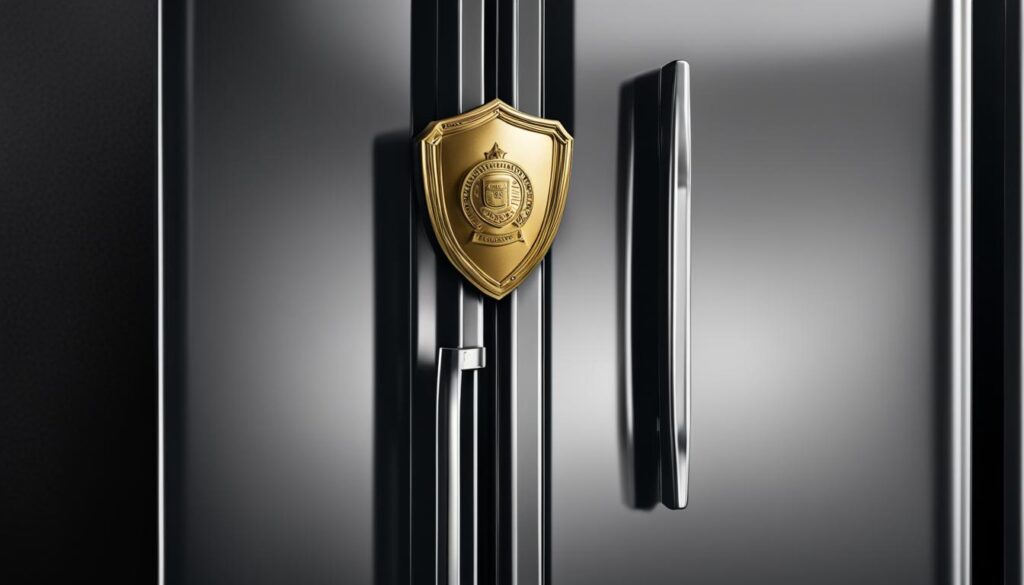
The Value of Peace of Mind
While extended warranties may not always be the most cost-effective option, they can provide valuable peace of mind for some consumers. If you’re someone who prefers to have added protection and wants to avoid unexpected expenses, an extended warranty might be worth considering.
In summary, the decision to purchase an extended warranty for your appliances depends on your individual circumstances and preferences. Consider factors such as the cost of the warranty, the likelihood of repairs, and how much peace of mind it would provide. If you decide that an extended warranty is the right choice for you, be sure to research reputable providers and carefully review the coverage details before making a final decision.
Conclusion
Securing your purchase with an extended appliance warranty can offer peace of mind and protection against unexpected expenses. By understanding the pros and cons, coverage options, and alternatives available, you can make an informed decision that aligns with your needs and budget. Whether you choose to purchase an extended warranty or explore other options, taking steps to protect your appliances can help ensure that your home runs smoothly.
At [Our Company Name], we understand the importance of safeguarding your investments. That’s why we offer a range of comprehensive and affordable extended appliance warranties. Our warranties provide coverage for mechanical failures, manufacturer defects, and even accidental damage, giving you the confidence to use your appliances without worrying about unexpected repair costs. With our flexible plans and dedicated customer support, we strive to provide the best appliance warranty options for our customers.
So, why wait? Take the necessary steps to protect your appliances and enjoy the peace of mind that comes with an extended appliance warranty. Contact us today to learn more about our coverage options and find the best appliance warranty for your needs. Trust [Our Company Name] to secure your purchase and provide the protection you deserve.
Table: Pros and Cons of Extended Appliance Warranties
| Pros | Cons |
|---|---|
| – Predictable expenses | – Potentially higher cost compared to necessary repairs |
| – Access to qualified technicians for repairs | – Separate warranties needed for each appliance |
| – Customizable coverage options | |
| – Extended coverage beyond manufacturer’s warranty |
Compare Quotes From Top-rated Home Warranty Companies
When it comes to protecting your appliances and home systems, finding the right home warranty company is essential. With so many options available, it can be overwhelming to choose the best coverage for your needs. That’s why we recommend comparing quotes from top-rated home warranty companies, allowing you to make an informed decision.
Why Compare Quotes?
Comparing quotes from multiple home warranty providers allows you to evaluate the different plan options, pricing, customer service, and additional benefits offered. It gives you an opportunity to assess the value and coverage provided by each company, ensuring that you select a home warranty that aligns with your specific needs and budget.
By taking the time to compare quotes, you can gain insights into the reputations of various home warranty companies, as well as the experiences of other homeowners. This information can guide you in making a well-informed decision, giving you peace of mind knowing that your appliances and home systems are protected.
Choosing the Best Home Warranty Company
When comparing home warranty quotes, consider factors such as coverage options and exclusions, service call fees, claim limits, and the overall reliability of the company. Look for a provider that offers comprehensive coverage for a wide range of appliances and systems, with transparent terms and conditions.
Additionally, pay attention to the reputation and customer reviews of each home warranty company. Online resources and customer feedback can offer valuable insights into the quality of service provided, helping you choose a company that prioritizes customer satisfaction.
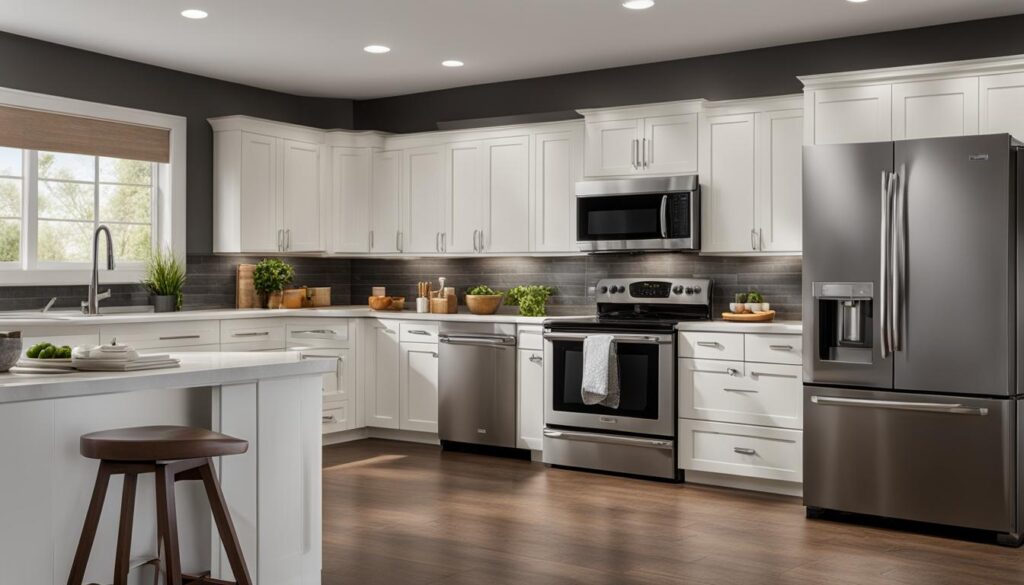
| Home Warranty Company | Plan Options | Pricing | Customer Service | Additional Benefits |
|---|---|---|---|---|
| Company A | Multiple plans tailored to different needs | Competitive pricing with flexible payment options | 24/7 customer support with quick claim resolution | Discount programs, home security features |
| Company B | Basic and comprehensive plans available | Affordable options with various deductible choices | Dedicated customer service team | 24/7 emergency assistance, discounted repairs |
| Company C | Customizable plans with add-on coverage | Transparent pricing and payment options | Responsive customer support | Coverage for pre-existing conditions, free maintenance services |
Comparing quotes from top-rated home warranty companies will help you find the best coverage for your appliances and give you the peace of mind you deserve. Take the time to evaluate different providers, consider their plan options, pricing, customer service, and additional benefits. By making an informed decision, you can choose a home warranty that provides reliable protection for your home.
What to Know About Buying a Home Warranty
When considering the purchase of a home warranty, there are a few key factors to keep in mind. Understanding the coverage details, plan options, pricing, and reputation of the home warranty company is crucial in making an informed decision. It’s important to research and read reviews to gain insights from other homeowners who have dealt with various providers.
First and foremost, consider the specific appliances and systems that you want to protect. Different home warranty companies may offer varying levels of coverage, so it’s important to choose one that suits your needs. Look for a provider that offers comprehensive appliance protection plans and maintenance plans to ensure your home is safeguarded against unforeseen breakdowns.
Price is another important factor when buying a home warranty. Compare the pricing structure of different companies to find the best value for your money. While cost is a consideration, it’s equally important to evaluate the reputation and customer service of the home warranty provider. Look for a company that is known for its reliability, prompt response times, and excellent customer support.
In conclusion, purchasing a home warranty is an effective way to protect your appliances and systems from unexpected repairs and replacements. By researching the coverage options, pricing, and reputation of the best home warranty companies, you can make an informed decision that provides peace of mind and financial security. With the right appliance protection plan and maintenance plan in place, you can enjoy the comfort of knowing that your home is well-protected.
Can Commercial Appliance Parts and Accessories be Covered by an Extended Warranty?
When considering extended warranties for commercial appliance parts understanding the terms and coverage is essential. It’s important to carefully review the warranty to determine if it includes parts and accessories for your specific commercial appliances. By understanding the details, you can ensure comprehensive coverage for your business’s valuable equipment.
FAQ
What is an extended appliance warranty?
An extended appliance warranty provides coverage to repair or replace your appliance if it fails within the warranty period. It is similar to the manufacturer’s standard warranty but offers coverage for a longer timeframe.
How much does an extended appliance warranty cost?
The cost of an extended appliance warranty depends on various factors, including the warranty provider, the type of appliance, and the desired coverage. On average, extended appliance warranties can range from $20 to $500 per year.
What’s the difference between an extended appliance warranty and a home warranty?
An extended appliance warranty covers a specific appliance and extends the coverage beyond the manufacturer’s warranty. A home warranty, on the other hand, provides coverage for multiple appliances and systems in your home, such as plumbing, electrical, and HVAC.
What do appliance extended warranties cover?
Appliance extended warranties typically cover the repair and replacement of mechanical components in a covered appliance. However, it’s important to review the warranty’s coverage details, as some warranties may exclude coverage for cosmetic components or accidental damage.
When should you consider buying an extended warranty?
If you have a high-value appliance or if you’re concerned about potential repair costs, purchasing an extended warranty may offer peace of mind. It’s important to evaluate the cost of the warranty against the likelihood of repairs and the specific needs of your household.
What are the alternatives to appliance extended warranties?
Home warranties provide coverage for multiple appliances and systems in your home, offering more comprehensive protection. Another option is setting aside money each month specifically for appliance repairs, providing a self-funded solution. It’s important to assess your specific circumstances and weigh the pros and cons of each alternative.
Are extended warranties worth it?
The value of an extended warranty depends on various factors, such as the cost of the warranty, the likelihood of repairs, and personal preferences. While extended warranties can provide peace of mind, statistically, most consumers spend more on the warranty than they actually need for repairs. It’s important to carefully consider the cost-benefit ratio and assess your individual circumstances before making a decision.
How do I compare quotes from top-rated home warranty companies?
Researching and comparing quotes from top-rated home warranty companies can help you find the best coverage for your appliances and home systems. Consider factors such as plan options, pricing, customer service, and additional benefits when evaluating different providers.
What should I know about buying a home warranty?
When purchasing a home warranty, it’s important to understand the coverage details, plan options, pricing, and reputation of the home warranty company. Researching and reading reviews can provide insights into the experiences of other homeowners and help you make an informed decision.
